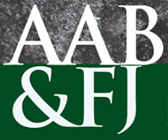Abstract
Introduction/Main Objectives: This research was conducted to provide empirical evidence regarding the analysis of the influence of cyber security, digitalisation, and data visualisation on the quality of internal environmental audits.
Background Problems: Some data finds that many hotel industries are still polluting and not managing waste properly according to applicable regulations. So, it is necessary to carry out an internal environmental audit as a reference material for making management decisions. Novelty: Researchers raised variables based on technological sophistication that were not previously considered in audit research. Another novelty is that the research was conducted in the context of service companies in developing countries.
Research Methods: Research was conducted at 300 star hotels in Bali. The data collection technique uses a survey mechanism with the help of a questionnaire as a research instrument.
Findings/Results: The results of this research show that cyber security, digitalisation, and data visualisation have a significant positive effect on the quality of hotels’ internal environmental audits.
Conclusion: Based on empirical findings, it can be concluded that cyber security, digitalisation and data visualisation have a significant positive effect on the quality of internal environmental audits. Therefore, the increasing use of cyber security, managerial digitalisation, and adoption of data visualisation models will improve the quality of internal environmental audits, which can be used by management as a guide in decision making and communication with stakeholders.
Keywords: Cybersecurity, Digitalisation, Data visualisation, Internal environmental audit
How to Cite:
Saputra, K. & Paranoan, S., (2024) “Do Cyber security, Digitalisation and Data Visualisation Affect the Quality of Internal Environmental Audits?”, Australasian Accounting, Business and Finance Journal 18(2), 158-174. doi: https://doi.org/10.14453/aabfj.v18i2.10
Downloads:
Download PDF
738 Views
901 Downloads

